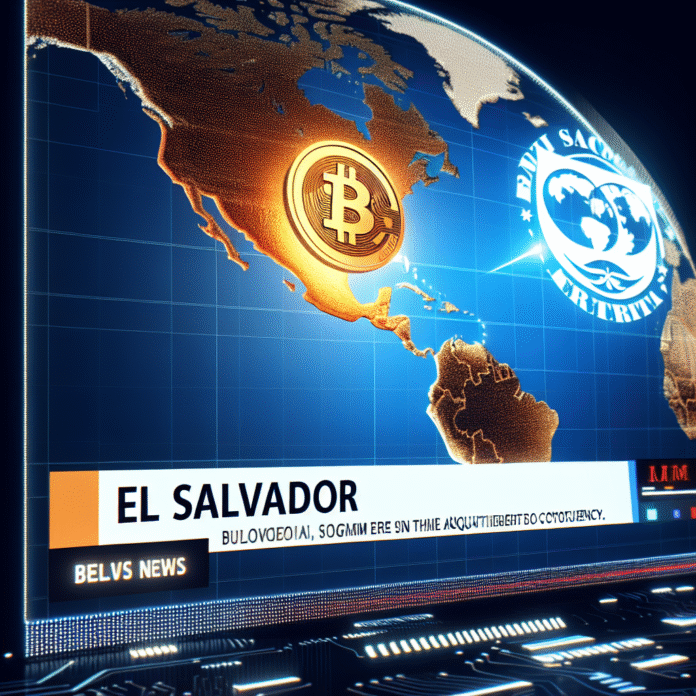Latest Developments in Cryptocurrency El Salvador Purchases Additional 240 Bitcoin Following IMF Agreement
The Economic Times
Cryptocurrency Live Updates: El Salvador Expands Bitcoin Holdings Following IMF Agreement
In a significant move for the cryptocurrency landscape, El Salvador has recently acquired an additional 240 Bitcoin as part of its ongoing efforts to bolster its digital currency reserves. This acquisition follows the country’s recent agreement with the International Monetary Fund (IMF), which has sparked renewed interest in the nation’s Bitcoin strategy and its implications for the global financial system.
El Salvador’s Bold Bitcoin Journey
El Salvador made headlines in September 2021 when it became the first country in the world to adopt Bitcoin as legal tender. Since then, the government under President Nayib Bukele has actively pursued a strategy to integrate cryptocurrency into its economy. This latest purchase of 240 Bitcoin adds to the nation’s existing holdings and reflects a commitment to leveraging digital assets for economic growth.
Details of the IMF Deal
The recent agreement with the IMF is part of a broader strategy to secure financial stability and attract foreign investment. While the details of the deal have not been fully disclosed, it is believed to include provisions that support El Salvador’s ambitious Bitcoin plans while ensuring fiscal responsibility. The IMF has expressed concerns about the volatility of cryptocurrencies, but the Salvadoran government remains optimistic about Bitcoin’s potential to drive financial inclusion.
Market Reactions and Future Implications
The announcement of El Salvador’s latest Bitcoin acquisition has led to mixed reactions within the cryptocurrency market. Some investors view this as a positive sign of institutional adoption, while others remain cautious due to the inherent volatility associated with digital currencies. Analysts suggest that El Salvador’s continued investment in Bitcoin could set a precedent for other nations considering similar moves.
Furthermore, the implications of this acquisition extend beyond just El Salvador. As more countries explore the potential of digital currencies, the global financial landscape may undergo significant transformations. The integration of Bitcoin into national economies could lead to increased interest in blockchain technology, decentralized finance (DeFi), and the development of innovative financial products.
Challenges Ahead
Despite the strides made by El Salvador, challenges remain. The country has faced criticism for its Bitcoin initiative, particularly regarding the volatility of the cryptocurrency and its impact on the economy. Additionally, concerns about regulatory frameworks and the need for financial education among citizens persist. The government is working to address these issues while promoting the benefits of cryptocurrency.
Conclusion
El Salvador’s acquisition of 240 additional Bitcoin following the IMF deal underscores its commitment to pioneering a new path in the realm of digital currency. As the world watches closely, the outcomes of this endeavor could have far-reaching implications for both the nation and the global financial system. Whether this bold experiment will lead to economic prosperity or pose significant risks remains to be seen, but it undoubtedly marks a pivotal moment in the evolution of cryptocurrency.


